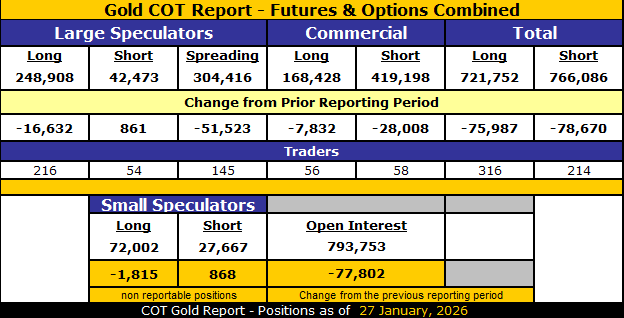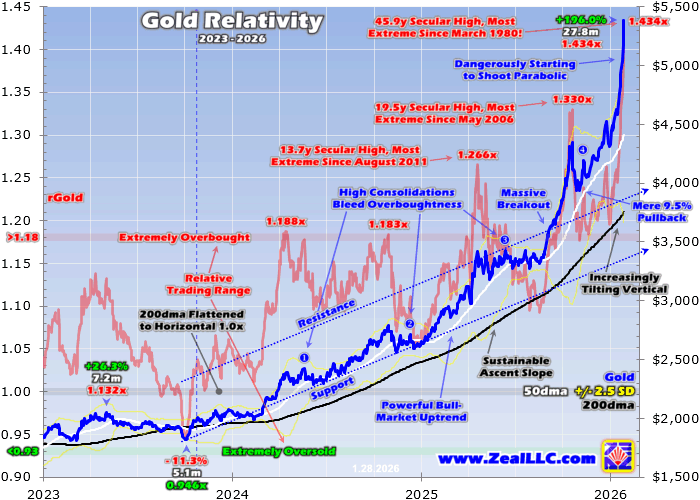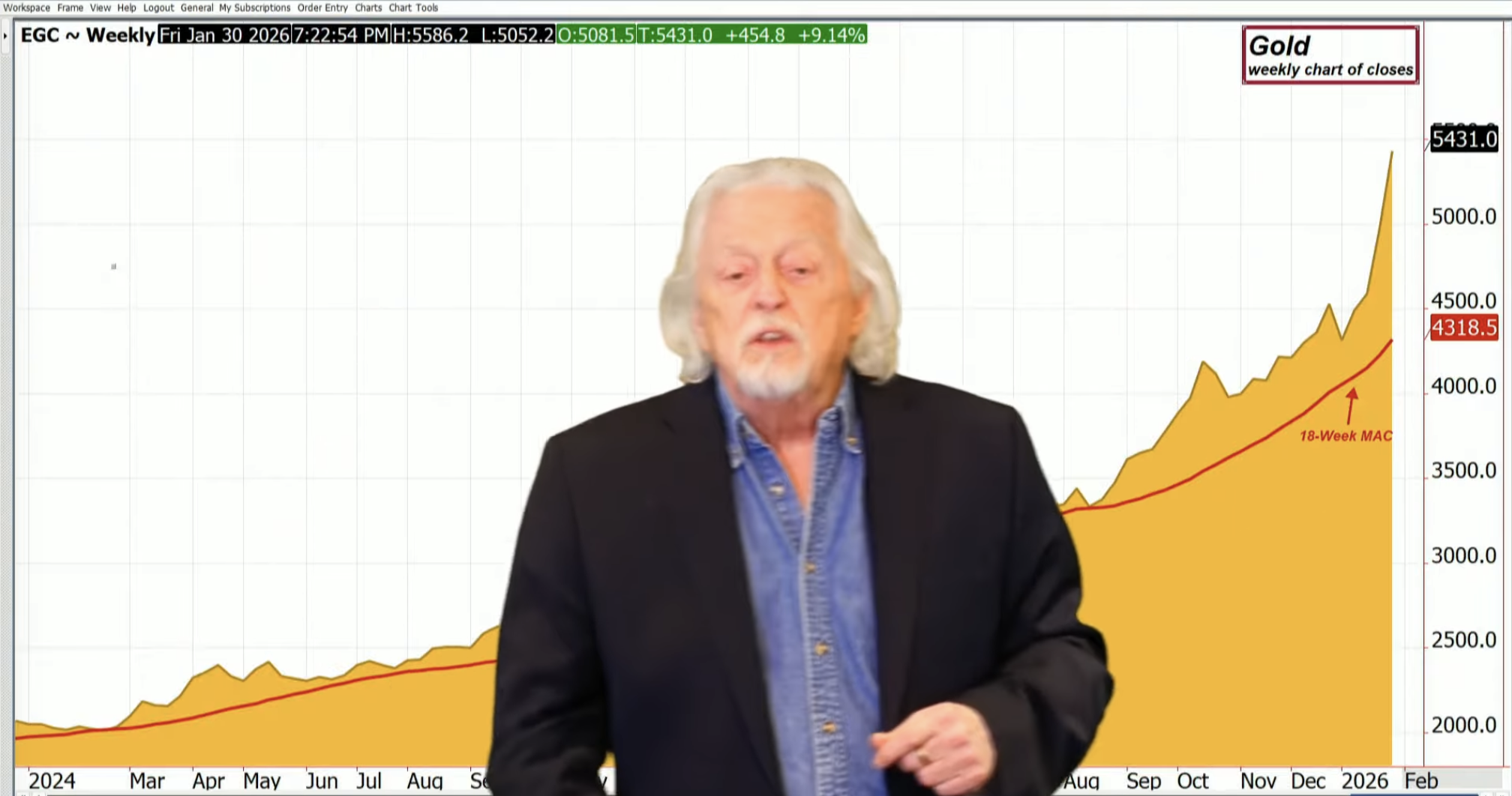In last week’s interview with Glenn Diesen, Peter walks listeners through why a falling dollar is not the catastrophe many fear but rather an unavoidable correction that could actually help the global economy adjust. He ties the currency outlook to fiscal excess, crony protectionism, the Fed’s politics, and a coming sovereign debt crisis — and argues that sound money and foreign assets are the right way to prepare.
He starts by reframing the dollar’s weakness as part of the fix rather than the problem, explaining how decades of foreign demand for dollars created unsustainable imbalances and a foundation of trade deficits:
Well you know the weakness of the dollar is actually not part of the problem; it’s part of the solution. The dollar, unfortunately for Americans, has to get weaker, but for the rest of the world this is going to turn out to be a positive thing. You know Donald Trump has picked a fight that America can’t win because our entire economy has been built on the foundation of trade deficits and artificially low consumer prices, artificially low interest rates … So Americans on paper have been richer and their lives have been better because they’ve been able to live beyond their means; Americans could buy things that they really can’t afford that they didn’t produce and they pay for it with money that the Fed creates out of thin air.
He then criticizes the myth of Fed independence and warns that political meddling is eroding any pretense of impartial monetary stewardship:
I’ve always talked about Fed independence being more of a pretense anyway; I think that the Fed has not acted independently in the past and has been way too cooperative and complicit in enabling excess government spending, particularly deficit spending. But at least, you know, there’s a pretense there and to some degree the Fed has a limited independence not as much as it should, but at least there’s something there. What Trump is doing is tearing apart even that pretense.
Peter connects the fiscal choices being made — particularly large deficit spending — to the dollar’s long-term reserve status and argues political priorities are actively undermining confidence in U.S. obligations:
If Trump was concerned about preserving the dollar’s role as a reserve currency he would have vetoed the big beautiful bill because that is a threat to that role. What we need to stabilize the dollar is to get rid of the deficit spending and so we need substantial cuts to government spending right now; we need to show the world that we are serious about the fiscal position of the United States and our ability to make good on our debts with dollars that maintain their purchasing power. But Trump is basically telling the world we don’t care about the dollar’s purchasing power — we’re going to create massive inflation to artificially stimulate the economy.
He warns that protectionist tariffs are largely symbolic theater that will hurt American consumers more than foreign producers, especially when the domestic supply chain no longer exists for many goods:
First of all, protectionism especially doesn’t work when the industries you’re trying to protect don’t even exist. These tariffs are going to be very problematic for Americans; there’ll be a nuisance for India but there’ll be a huge problem for America because India is in the driver’s seat — India is making all the stuff and if Americans can’t afford to buy it because they can’t afford to pay the tariffs, well India just needs to sell its goods to other consumers who don’t have to pay those tariffs or allow their own population to buy the products or make different products. The tariffs are on Americans; they’re not on India, they’re not on China, they’re on Americans who want to buy foreign products.
Moving from trade to crisis risk, Peter argues the next major downturn will eclipse 2008 because today’s vulnerabilities are both larger and more systemic — centered on sovereign debt and the dollar itself and likely to be much worse than 2008:
First of all we haven’t even had this crisis yet, but when we do it’s going to be much worse than 2008. Yes, it is all a continuation of the same failed economic policies — monetary policies, fiscal policies that led to 2008 — and the current policy mix, the mistakes that are being made, are even greater than the mistakes that were made that led to that crisis, so the next crisis is going to be much worse. I think it’s not going to be just centered in the mortgage market; this is going to be a sovereign debt crisis where it’s U.S. treasury bonds that are at the center of the crisis and the U.S. dollar, so it’s not just a financial crisis — it’s a U.S. dollar and sovereign debt crisis.
Call 1-888-GOLD-160 and speak with a Precious Metals Specialist today!
Read the full article here







Leave a Reply